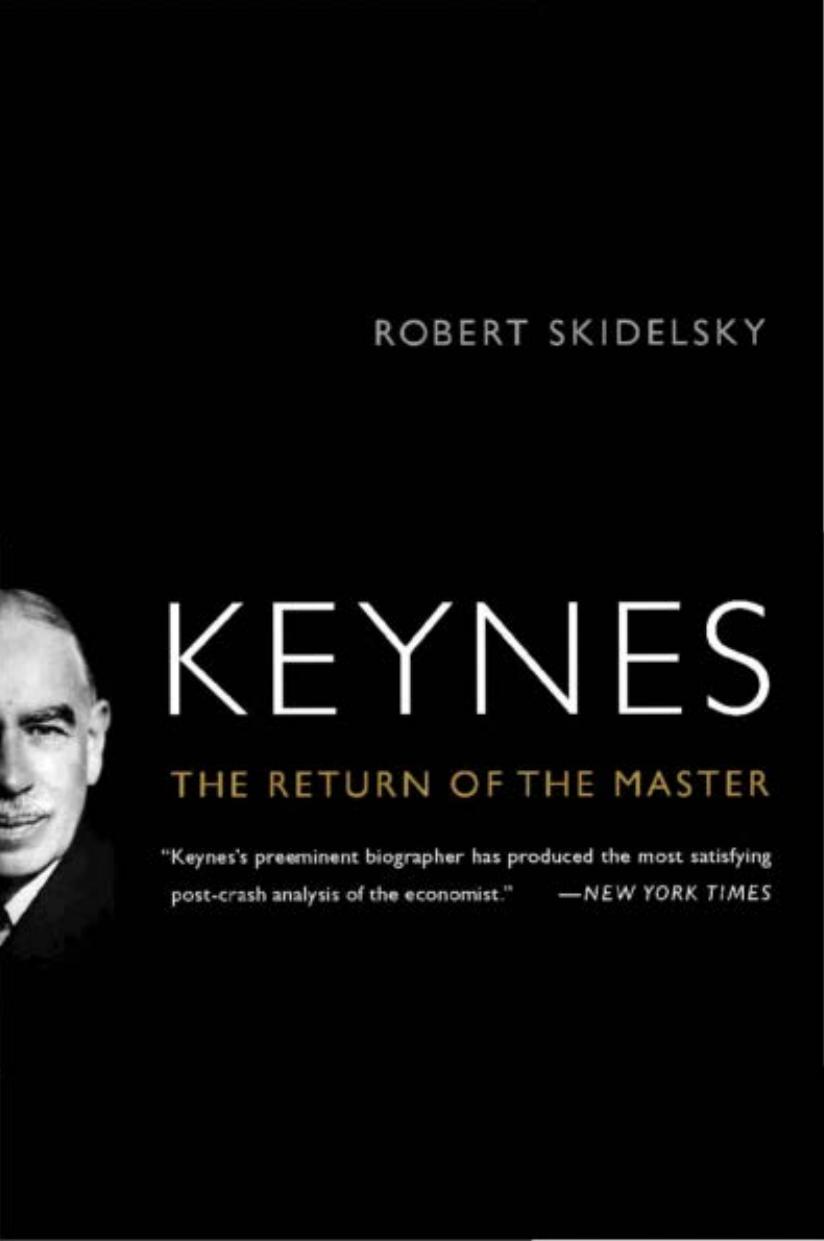Keynes: The Return of the Master by Robert Skidelsky

Author:Robert Skidelsky [Skidelsky, Robert]
Language: eng
Format: epub, pdf
ISBN: 9781610390033
Google: KxY5DgAAQBAJ
Amazon: 158648897X
Published: 2010-10-26T15:12:53.340000+00:00
The New Classical Economics
However, Friedmanâs theory of âadaptive expectationsâ did not go far enough for a new generation of mathematically trained economists like his former student Robert Lucas. Friedman has agents learning from, and adapting their behaviour to, changing market signals, but with an inevitable lag since market processes take place in time. But rational agents should be able to do better than that. They should already have learned from past experience (their own and everyone elseâs) that certain types of event will bring about certain results. In that case, Friedmanâs distinction between the short period in which agents can be fooled and the long period in which they know what to expect becomes superfluous. Adaptive behaviour is a description of irrational behaviour if agents know what to expect already.
So, in the 1980s, the theory of adaptive expectations was followed by the theory of rational expectations. Rational expectations theorists have carried Friedmanâs scepticism about managing the business cycle to its logical conclusion. If monetary policy is systematically operated according to Keynesian principles, it will be anticipated, and have no real effects even in the short run! Stabilization policy would then be possible only if governments had better information than private agents. By abolishing the âshort periodâ, the New Classical macroeconomics abolished the narrow interval of time that Friedmanâs monetarism had left for Keynesian policy to work in. In Robert Solowâs words, the rational expectations revolution swept away âall of the loopholes that provided some fuzziness in the vertical long-run Phillips Curveâ.4
Real business cycle theory was invented to close any remaining loop-hole for government intervention. The economy is constantly at full employment, since the observed fluctuations in output are fluctuations in Friedmanâs ânatural rateâ of unemployment and not deviations from it. Thus, government interference to reduce instability will always result in a reduction in welfare.
It is hard to know whether real business cycle theorists actually believed in their models, or whether they just found it more mathematically elegant to do their economics in this way. The political comfort their theory gave to those clamouring to reduce taxes and âget Washington off our backsâ was clear enough. Nothing a government could do to stimulate the economy would work; in fact it was bound to make things worse. So government might as well cut taxes, deregulate economic life, and let businessmen get on with the job of producing wealth, not least for themselves.
Download
Keynes: The Return of the Master by Robert Skidelsky.pdf
This site does not store any files on its server. We only index and link to content provided by other sites. Please contact the content providers to delete copyright contents if any and email us, we'll remove relevant links or contents immediately.
International Integration of the Brazilian Economy by Elias C. Grivoyannis(57323)
The Radium Girls by Kate Moore(10907)
Turbulence by E. J. Noyes(7039)
Nudge - Improving Decisions about Health, Wealth, and Happiness by Thaler Sunstein(6633)
The Black Swan by Nassim Nicholas Taleb(6191)
Pioneering Portfolio Management by David F. Swensen(5606)
Rich Dad Poor Dad by Robert T. Kiyosaki(5149)
Zero to One by Peter Thiel(4824)
Man-made Catastrophes and Risk Information Concealment by Dmitry Chernov & Didier Sornette(4736)
Secrecy World by Jake Bernstein(3782)
Millionaire: The Philanderer, Gambler, and Duelist Who Invented Modern Finance by Janet Gleeson(3569)
Skin in the Game by Nassim Nicholas Taleb(3460)
The Age of Surveillance Capitalism by Shoshana Zuboff(3422)
The Money Culture by Michael Lewis(3284)
Skin in the Game: Hidden Asymmetries in Daily Life by Nassim Nicholas Taleb(3264)
Bullshit Jobs by David Graeber(3180)
The Dhandho Investor by Mohnish Pabrai(3168)
The Wisdom of Finance by Mihir Desai(3079)
Blockchain Basics by Daniel Drescher(2891)
